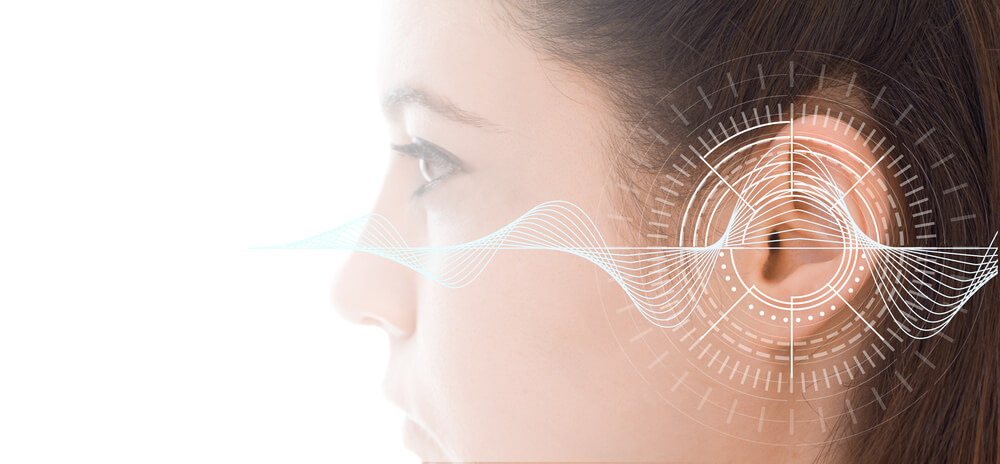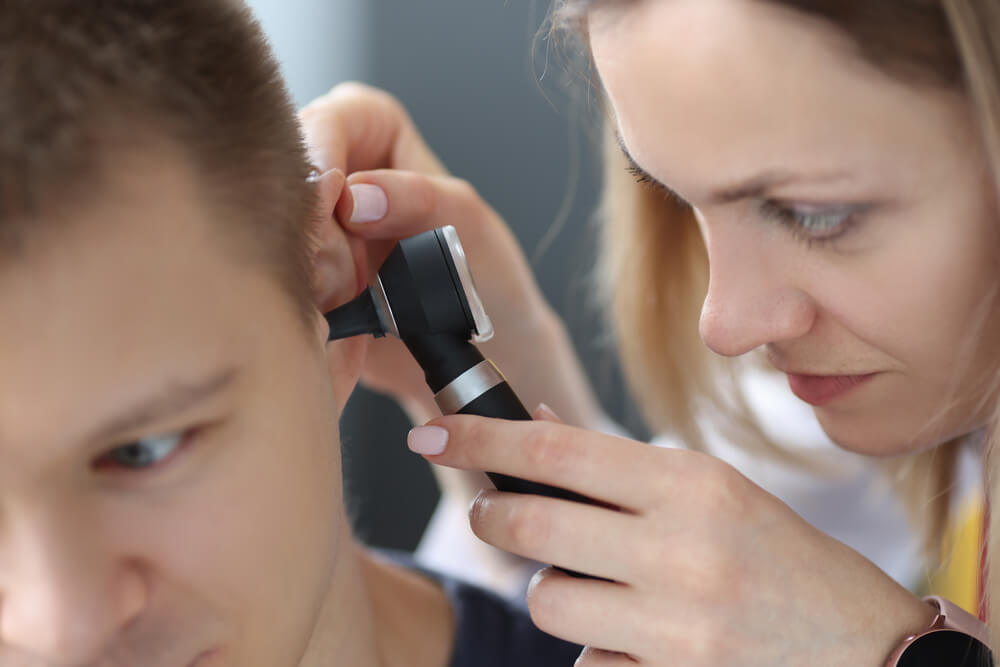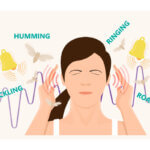Table of Contents
Researchers have long noted the similarities between tinnitus and chronic pain. Advances in brain imaging have helped them investigate the structural and functional bases of these disorders. Recent findings suggest that both tinnitus and chronic pain are rooted in a central gatekeeping system. In the new study, collaborators at the Technical University of Munich integrate these findings into a model of disease.
Yin-yang imbalance causes tinnitus

The tinnitus pattern is often the result of a yin-yang imbalance. The rising of yang, a type of fire energy, is associated with a deficiency of yin. When yin becomes depleted, yang takes over and disrupts the delicate balance of yin and yang in the body. As a result, the ringing in the ear may be the result. Other symptoms of yang rising include dizziness, sweating, and irritability.
Traditional Chinese medicine uses the yin-yang concept to diagnose patients. A patient with chronic obstructive pulmonary disease is often divided into yin and yang types. A yin-deficiency patient will often complain of intense thirst. In addition, tongue diagnosis is an integral part of traditional Chinese medicine. If you're experiencing tinnitus in fibromyalgia, try treating the underlying condition.
Yin-yang balance can also cause symptoms of menopause. Menstrual cycles can cause women to experience hot flashes, night sweats, and a lack of sleep. Both yin and yang support each other, so an imbalance of either can cause a variety of symptoms. For example, an excess of water in the menstrual cycle can lead to hot flashes, hypochondriac pain, a bitter taste in the mouth, and even dizziness. The stagnation of damp-heat in the kidneys can cause dizziness, poor appetite, and a low backache.
Yin-yang balance is a major cause of tinnitus in fibromyalgia and other painful conditions. This imbalance can affect all parts of the body and cause chronic pain, including the head. Yin-yang balance in the body can also lead to an increased risk of depression and heart disease.
Yin-yang imbalance causes fibromyalgia
The traditional Chinese medical model of yin-yang balance relates the yin and yang energy to every clinical symptom. For example, patients with chronic obstructive pulmonary disease (COPD) are divided into yin-deficient and yang-deficient types, depending on their symptoms. For example, patients with a high fever and persistent, significant elevation of their temperature are probably yin-deficient.
The governing vessel, also known as the Sea of Yang, is located in the lower back near the kidneys. The Du Mai runs up the spine, around the top of the head, and ends in the middle of the face. It is responsible for the smooth flow of qi and blood and is a key organ to health. Other weak internal organs provide a fertile environment for pathogenic influences and pathogens. Fibromyalgia is often characterized by four distinct patterns.
Alternative medicine is a great solution for fibromyalgia patients. Western medications are often ineffective for treating these conditions, which stem from emotional stress. Acupuncture has a long history of treating emotional disturbances and restoring proper connections between nerve endings and the brain. Besides being highly effective in treating musculoskeletal pain, it can also relieve other symptoms like constant fatigue.
Besides pain and inflammation, a Yin-yang imbalance is also a key contributor to fibromyalgia and a variety of other diseases, including lupus, depression, and stress. Both conditions involve an abnormal central nervous system, which is what makes them so challenging to treat. Acupuncture has the added advantage of being safe and effective.
Hearing loss causes tinnitus

Tinnitus is a very common condition that occurs when the brain is unable to properly process sound. Many times this happens when a person is suffering from hearing loss, which is a common occurrence in older people. Tinnitus is also a common side effect of prescription drugs known as ototoxic. Ototoxic drugs affect the ear's nerve supply, and they can cause tinnitus as well.
Treatment for tinnitus in fibro-myalgia involves seeking a doctor who specializes in the condition. Your primary care physician may be able to prescribe hearing aids or refer you to a hearing specialist who specializes in this condition. A specialist can help you determine whether you have a hearing problem by performing a thorough exam of your head and neck. Your otolaryngologist can also test your hearing by performing a tympanogram. A tympanogram measures the stiffness of the eardrum in the middle ear. The procedure is non-invasive and rarely painful.
Moreover, a comorbid condition called fibromyalgia is associated with hearing loss. The authors of this study suggest that fibromyalgia patients may experience this condition if they are also suffering from hearing loss. A new study published in BioMed Central Musculoskeletal Disorders suggests that hearing loss in patients with fibromyalgia may be caused by multiple factors.
Another cause of tinnitus is an underlying condition, such as a severe head injury. This can lead to problems with nerves and blood flow, affecting the hearing. The problem should go away once the infection is under control. In addition, a TMJ disorder may cause tinnitus, which can affect the function of the middle ear. In some cases, the condition can be treated with TMJ treatment.
Although the relationship between chronic pain and tinnitus remains largely unclear, scientists have begun to look at the common ground between the two. While chronic pain is often characterized by widespread pain, the underlying structural and functional changes in the brain may be responsible for tinnitus. If so, tinnitus and fibromyalgia may be connected in some way.
Treatments for tinnitus
Doctors may prescribe medications to treat tinnitus or refer patients to a specialist. A primary care physician will first try to rule out underlying conditions and will likely refer you to an otolaryngologist, an ear, nose, and throat specialist. The physician will examine your head, neck, and ears and may recommend a tympanogram, which is a diagnostic test that measures the stiffness and function of the eardrum in the middle ear. This test is usually noninvasive and isn't painful.
Besides prescription medications, doctors may recommend hearing aids and retraining therapy to reduce tinnitus. Hearing aids, known as cochlear implants, are surgically implanted in the ear to send electrical signals to the auditory nerve. Other methods include sound generators that play soft sounds or music loud enough to mask tinnitus noise.
Pulsatile tinnitus is characterized by a pulsating noise and can be a sign of other serious medical conditions. It can interfere with sleep, affect a person's ability to talk, and even cause a stroke. If left untreated, a pulsatile tinnitus may lead to a stroke or blindness. UCSF Interventional Neuroradiology offers a comprehensive array of treatment options for a variety of symptoms. In addition to treating tinnitus, UCSF also engages in research into the cause of the disease and its treatment methods.
NSAIDs may be prescribed for pain relief. In the US, the most common painkillers are acetaminophen, ibuprofen, and hydrocodone. However, overuse of NSAIDs can cause more harm than good to your hearing and may even damage your liver. Nevertheless, NSAIDs are effective for some people.
Some tinnitus cases are associated with a vestibular disorder. These conditions are commonly accompanied by hearing impairment, which can lead to a loss of hearing. In addition to hearing loss, some people also have damage to the hairs in the cochlea, which causes tinnitus. A blockage in the ear canal can cause pressure to build in the inner ear, altering its function. Other causes of ear canal blockage are earwax, inner ear hair, and infections.




Comments
Loading…